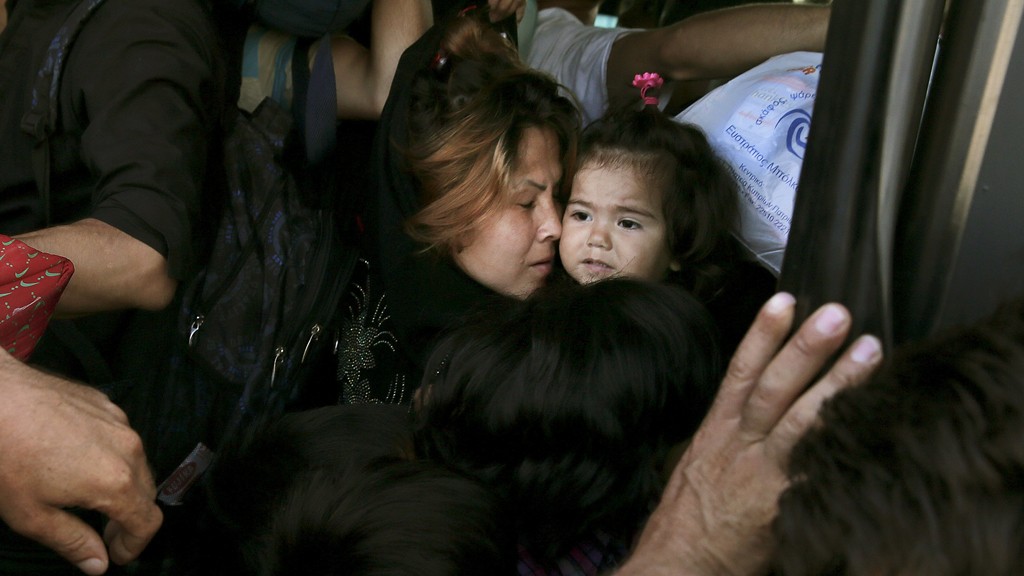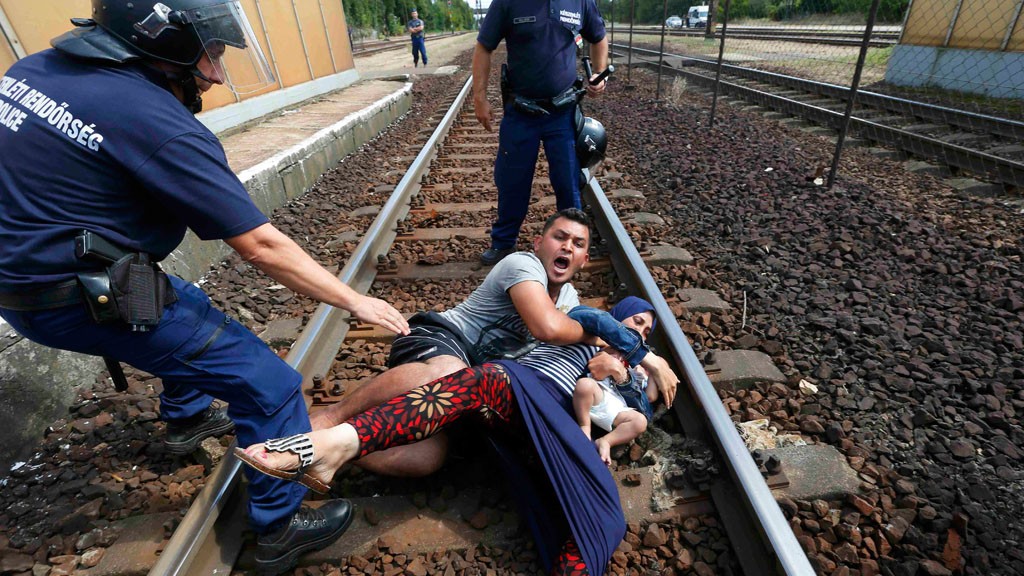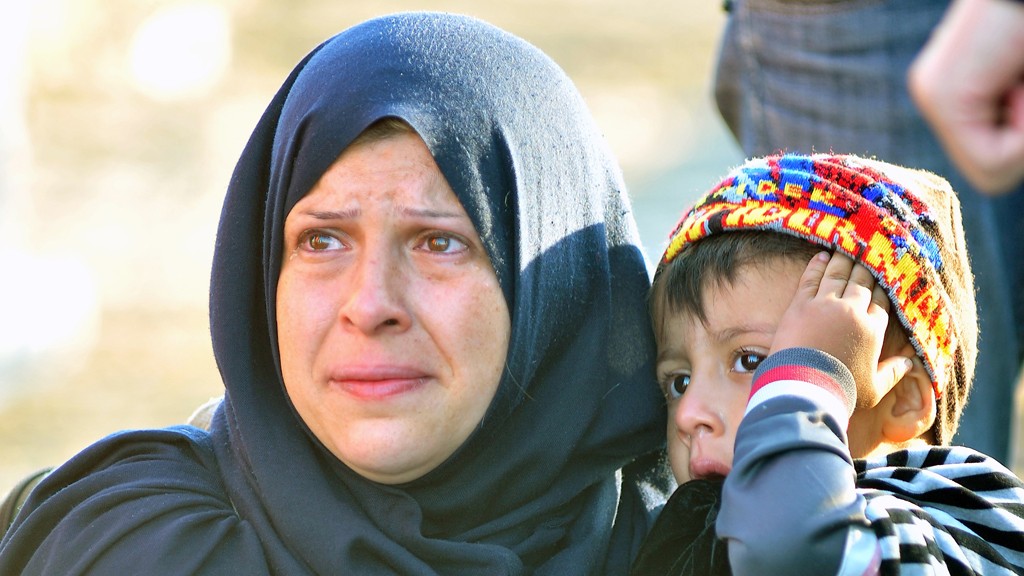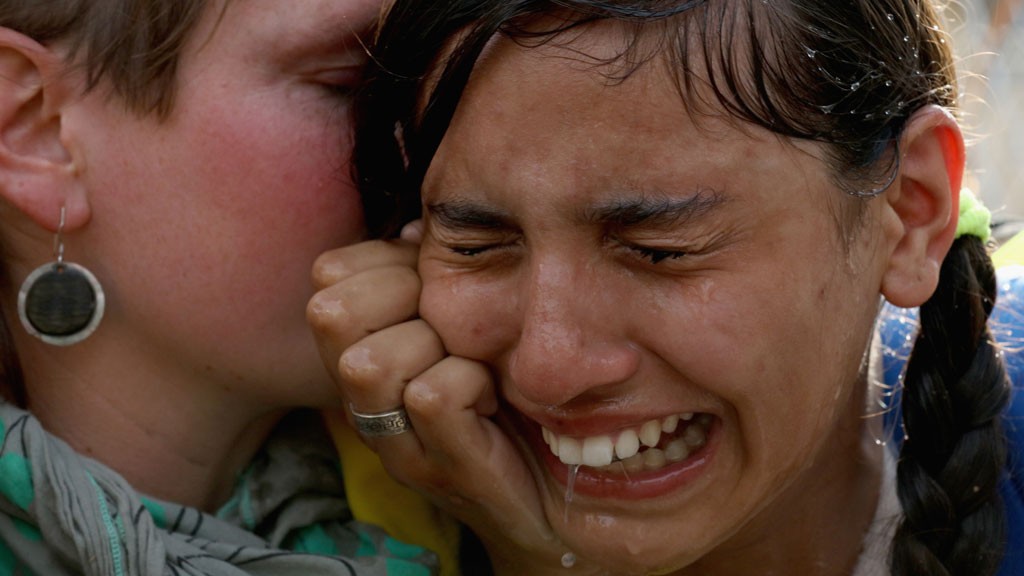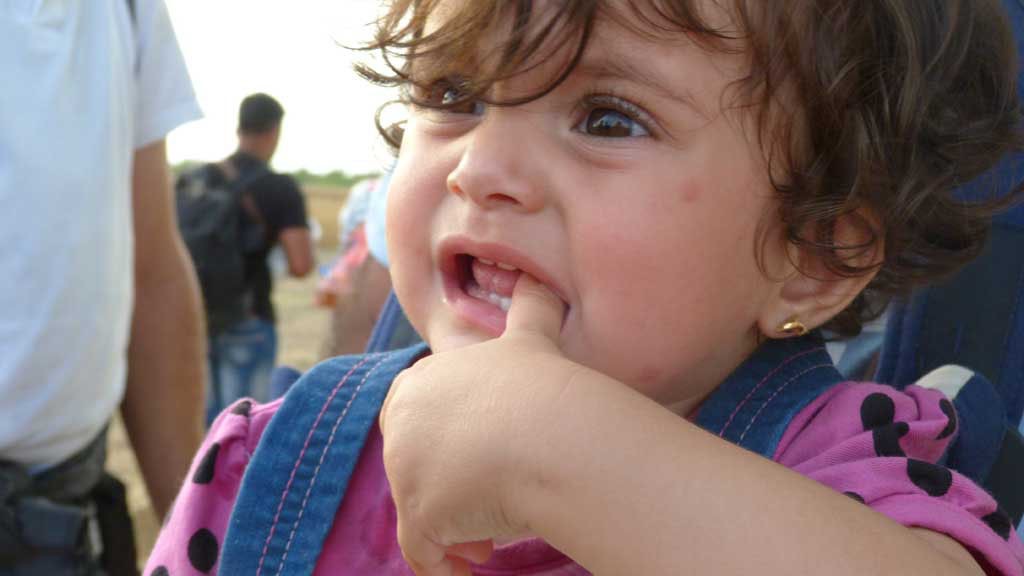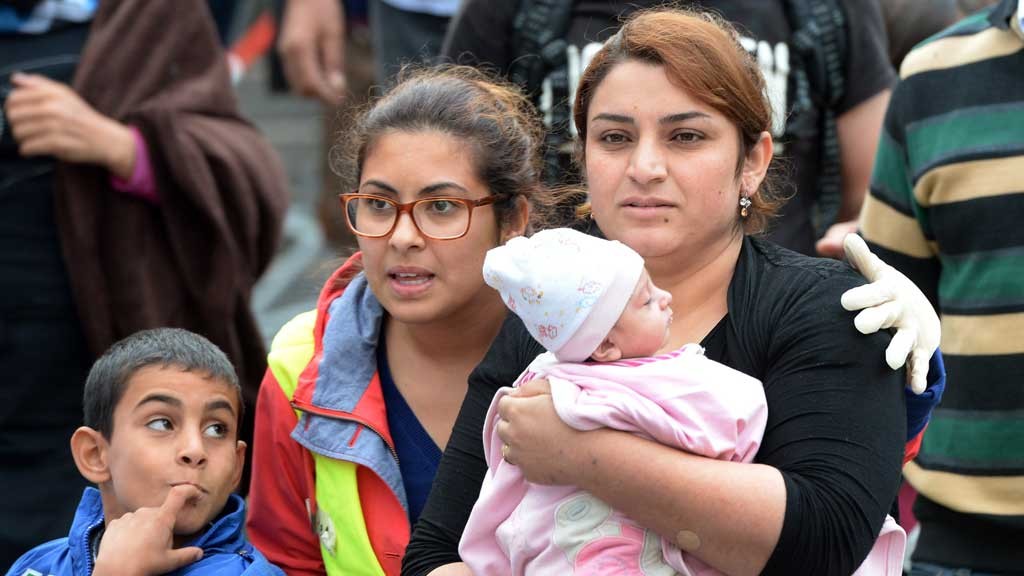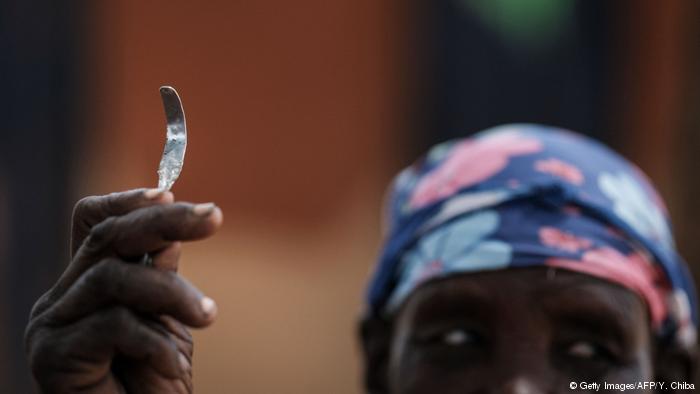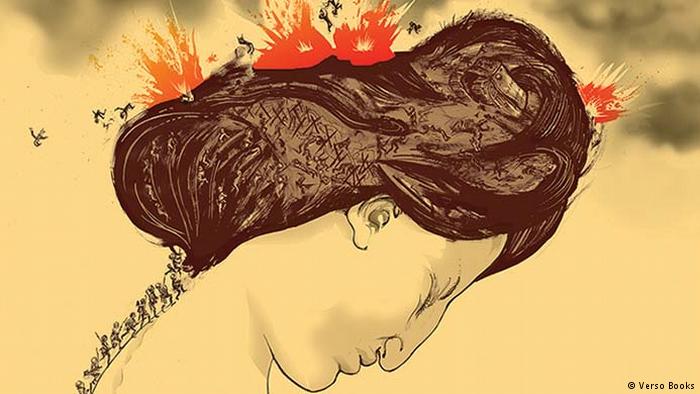Dreaming of a better future
As thousands of refugees keep ariving in Germany, the DW takes a look at women who undertake the long and arduous journey from their home in Syria to Europe. Many of them carry their babies or small children with them.
The title picture shows a migrant woman holding a baby as they try to squeeze into a bus following their arrival aboard the Eleftherios Venizelos passenger ship lyong at anchor in the port of Piraeus, near Athens, Greece September 7, 2015.
Greece is struggling to cope with migrants and refugees in their hundreds trying to flee from the war in Syria. The refugees make the short crossing from Turkey to land on one of Greece’s eastern islands such as Kos, Lesbos, Samos or Agathonisi.
Dramatic experiences
Hungarian policemen restrain a family of migrants as they try to run away at the railway station in the town of Bicske, Hungary, September 3, 2015. A camp for refugees and asylum seekers is located in Bicske.
Now Hungary has introduced a new law to regulate the influx of migrants and has declared a state of emergency in two counties close to the border. The new laws have created a dead end for migrants arriving at the Horgos frontier post, resulting in clashes between migrants and the Hungarian police. Pictures from the Hungarian border clearly show the refugees’ plight.
A refugee woman looks at the closed Serbian-Hungarian border near the town of Horgos, on September 14, 2015.
A migrant girl affected by pepper spray and tear gas after the Hungarian police repelled an attempt by migrants to crash through gate at the border post. The migrants tried to pull down the razor wire fence on September 16, 2015 in Horgos, Serbia.
A refugee girl on the border between Serbia and Croatia, not far from the city of Šid, Serbia. This is the way that many refugees take after Hungary closed its border with Serbia.
Hope for life in safety and dignity
Even after they arrive safely in Germany or in other countries that accept them, many children still suffer from trauma because of the violence they have seen or experienced in their own, apart from the dramatic journey to a better future.
Accompanied by a medical assistant, a refugee leaves with her child in her arms the main railway station in Munich, Germany, on September 5, 2015. Hundreds of refugees arrived in Germany on September 5, 2015, coming from Hungary and Austria.
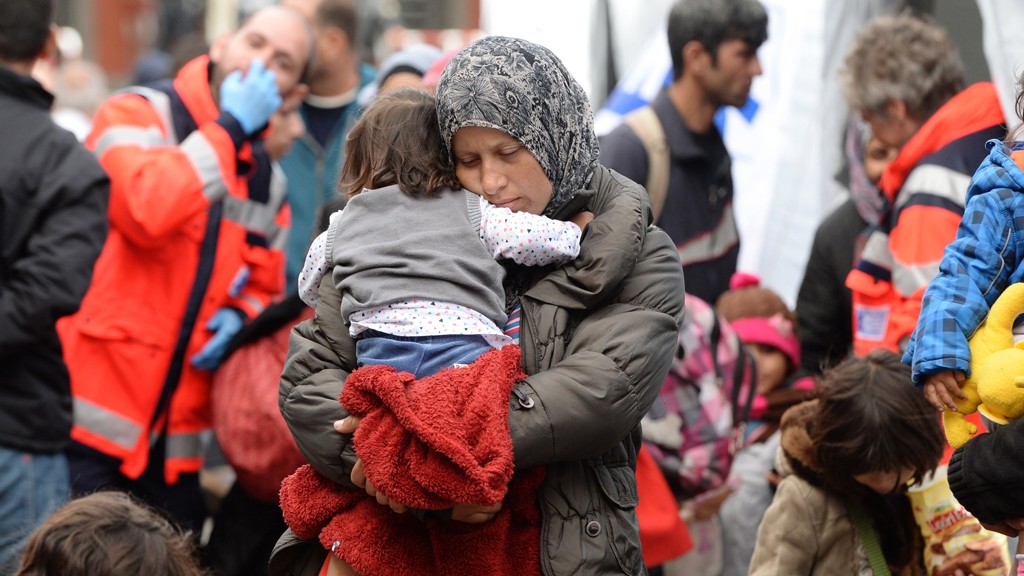
Migrant mother with a child waits for a first medical check after their arrival at the main railway station in Munich, southern Germany, on September 06, 2015. @ Getty Images/AFP/C. Stache
Migrant mother with a child waits for a first medical check-up after their arrival at the main railway station in Munich, southern Germany, on September 06, 2015. Women are particularly affected because it is in their nature to nurture.
Author: Marjory Linardy
Editor: Debarati Guha
WTO RECOMMENDS
“The tragedy of this family should not be the subject of this kind of satire.”
The refugee crisis in Europe has led #CharlieHebdo, the satirical French magazine, to publish some highly provocative cartoons. I won’t be buying this edition, said DW’s Grahame Lucas. Charlie Hebdo has always courted controversy. Ever since it was founded it has tested the limits of free speech over and over again. The magazine has consistently published its cartoons with complete disregard to personal, political, social or religious sensitivities according to the principle that satire knows no limits. And this principle remains at the heart of satire in the Western media simply because it plays a vital role. It is a means of presenting or challenging opinion in a compact and devastating form which no lengthy editorial can match.
Women suffered most when disaster occurs
Social, economic and political changes affect women enormously. But a disaster is the worst of all. Patriarchal social structures are prevalent all around the globe. These setups make women more vulnerable to disasters.
Women Immigrants Battle Their Fears Of The Unknown
Winnipeg, Canada – it’s a new world, a new journey. But instead of becoming the exciting experience it ought to be, it ends up being more about fending off unwanted fears of the unknown. Every new immigrant to Canada has to live through the three stages of acculturation, which for most is not easy. First comes the thrill and joy of exploring a new land, then there are feelings of marginalisation and hostility towards the host country and finally comes acceptance.



